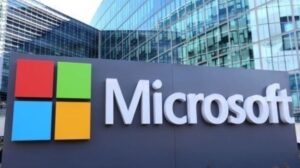Telecom
Sub-Saharan Africa 5G Connections to Reach 18m by 2025 – Report
Mobile technologies and services are expected to significantly increase in Sub-Saharan Africa, with over 137 million new mobile subscribers forecast to be added in the region by 2025.

An estimated 27% (165 million) of total mobile connections will be made on 4G and 3% (18.4 million) on 5G, by this period.
This is according to the latest “Mobile Economy Sub-Saharan Africa 2020” research report released by the GSM Association (GSMA) to coincide with the GSMA Thrive Africa virtual event.
It consists of an in-depth study that explores the latest data, forecasts and mobile trends for the region.
According to the report, mobile-enabled platforms and services will increasingly disrupt traditional value chains in Sub-Saharan Africa, as it remains the fastest-growing mobile region globally, with 477 million mobile subscribers at the end of 2019.
The additional 137 million subscribers expected over the next five years will take the total mobile subscriber base to just over 614 million, representing around half the population in the region and a CAGR growth rate of 4.3%.
While spectrum availability will promote strong growth in 4G and 5G connectivity over the next few years, 3G mobile connections will continue to dominate the region, says the GSMA.
The report calculates the strong growth in mobile connectivity across Sub-Saharan Africa will generate around $184 billion in economic value contributed to the region’s GDP by 2024.
“The findings from our Mobile Economy Sub-Saharan Africa report clearly show the importance and value of digital connectivity,” says Akinwale Goodluck, head of Africa, GSMA.
“Realising the full potential of a progressive digital future requires an informed policy debate. Governments and policymakers should implement policies to enhance access to connectivity and drive investment in more resilient digital infrastructure for the future.
This is crucial to reactivating the region’s economy post-COVID-19 despite the sizable contribution mobile technologies and services generated in 2019, growing at 9% of regional GDP.”
The COVID-19 pandemic has had a profound impact on the digital landscape around the world, and the mobile industry in Sub-Saharan Africa has largely risen to the challenge of keeping individuals and businesses connected during the pandemic, despite changes in data consumption patterns, the report points out.
However, with nearly 800 million people in the region still not connected to the mobile Internet, it has never been more urgent to close the digital divide, it advises.
Mobile money services, infrastructure and mobile-based content/services, as well as the application of mobile big data for social good, are expected to record the highest rise in the next five years, notes the report.
“The 2020s will see strong growth in the number of Africans connected to mobile broadband. As 4G and 5G grow together throughout the decade to come, spectrum preparation can drive cost-efficiency and promote growth,” according to the GSMA.
“Efficient and effective management of spectrum is also key to maximise the opportunities that mobile connectivity can bring to society. Making sure the required spectrum resources are available under the right conditions will lower broadband costs, increase coverage and boost connectivity.”
In 2018, mobile technologies and services supported almost 3.5 million jobs (directly and indirectly) and made a substantial contribution to the funding of the public sector, with almost $15.6 billion raised through taxation, according a previous report.
As countries increasingly benefit from the improvements in productivity and efficiency brought about by the increased take-up of mobile services, this is expected to significantly boost the informal economy, which accounts for a large part of the mobile ecosystem in Sub-Saharan Africa, notes the GMSA.
Nigeria and Ethiopia will record the fastest growth rates of mobile connectivity, between now and 2025, growing at 19% and 11% respectively, it adds.
Telecom
Bismarck, Economist Claims Planned Tariff Hike by Telcos Will Reduce Inflation
Bismarck Rewane, chief executive officer, Financial Derivatives, has said the proposed tariff hike by telecommunications will help reduce inflation in the country.

Rewane made this statement on Channels Television’s Business Morning on Thursday.
Recall that Association of Licensed Telecommunications Operators of Nigeria (ALTON) and the Association of Telecommunications Companies of Nigeria (ATCON) had urged the Nigerian Communications Commission (NCC) to consider reviewing tariffs upward to address rising operational costs.
On January 3, Karl Toriola, chief executive officer (CEO), MTN Nigeria, said telcos want a 100 percent tariff hike.
According to Rewane, who previously supported the plans for a tariff hike, the move will make the sector more sustainable.
He said it would help to reduce inflation because it increases productivity, stressing that the price of MTN shares went up by 10% to 220.
Rewane reiterated that investors had already factored that in, adding that they are expecting a lot of good goodies.
“But more important to think about is the fact that because of an increase in tariff and an increase in investment to make the industry sustainable, they’re going to see an increase in productivity, not directly but indirectly.
“Any increase in productivity and output is likely to allow inflation to moderate, which is the goal. So, we heard from the policymaker Bosun Tijani, who was very clear that we want a sustainable sector. But we also heard from the regulator saying that we will hold these guys to quality of service.
“We also heard from the operators, MTN that they are all revving up. So in all, there are economic benefits because of increased output and productivity. Two, policymakers are aligned because they want this to lead to a moderation in inflation,” he added.
He further said that it was not a bad deal and re-echoed the minister’s comment that the tariff hike will not be 100 per cent.
“Will they get 100%? No, they will definitely not. We suspect that we are going to likely see something between 40 and 50% which is fair after so many years of static changes,” Rewane added.
Telecom
Microsoft to Spend $80Bn on AI Data Centres
In a bid to build AI-enabled data centres, Brad Smith, vice chair and president, Microsoft has disclosed the company’s plan to spend approximately $80 billion in its current financial year (to end in June), with more than half of that investment designated for the US.

Smith in a blog post, explained the tech giant plans to use the data centres “to train AI models and deploy AI and cloud-based applications around the world.”
Smith welcomed U.S. President Donald Trump to his second term in office, he cautioned against “heavy-handed regulations” that could slow down the private sector.
“The most important US public-policy priority should be to ensure that the US private sector can continue to advance with the wind at its back,” Smith stated.
He further explained that the U.S. “needs a pragmatic export control policy that balances strong security protection for AI components in trusted data centers with the ability for U.S. companies to expand rapidly and provide a reliable source of supply to the many countries that are American allies and friends.”
Stating that the US is well-positioned to flourish in its development of AI due to solid technology development and an innovative private sector.
“If the Trump Administration can develop a strong national AI talent strategy and use AI to make the government more effective and efficient, it will put the country on a promising path.”
He stated the U.S. is in a strong position to “win the essential race with China by advancing international adoption of American AI.”
Smith further claimed U.S. “products are more trusted than their Chinese counterparts, and our private sector is unmatched in its ability to invest in infrastructure around the world.”
Telecom
TD Africa Empowers Nigerians with Sustainable Energy Solutions
TD Africa, a leading technology distribution company in Africa, has unveiled its Green Hero Initiative, a groundbreaking program designed to tackle Nigeria’s persistent energy challenges and promote the adoption of sustainable energy solutions.

This initiative underscores TD Africa’s commitment to advancing cleaner, more affordable energy alternatives for Nigerian households and businesses.
As the cost of fossil fuels continues to rise, the urgency for a shift to renewable energy has never been more apparent. Recognizing this need, TD Africa has partnered with global industry leaders Huawei and EcoFlow to introduce innovative renewable energy solutions tailored to meet the unique needs of Nigerian consumers.
“The Green Hero Initiative is more than just a product launch; it’s a commitment to a sustainable future,” said Chidiebere Nwabuko, Business Manager, Renewable Energy Solutions at TD Africa. “We’re empowering Nigerians to take control of their energy needs, reduce their carbon footprint, and enjoy the benefits of reliable, clean power.
“By partnering with global leaders like Huawei and EcoFlow, we’re bringing cutting-edge technology to the market that is not only affordable but also tailored to the specific needs of our customers and Nigerians across the country.”
Through the Green Hero Initiative, TD Africa is offering a variety of renewable energy solutions that cater to diverse energy needs. These solutions include the powerful Huawei ISite Power M, ideal for powering homes and small businesses, and Huawei ISite Power S, designed for commercial and industrial applications.
Additionally, EcoFlow’s portable power stations are made up of the River series and Delta series that attend to the needs of low and mid-range Nigerians and provide a convenient and clean energy source for residential homes, small and medium businesses and outdoor activities or backup power.
By promoting the adoption of renewable energy, TD Africa is committed to significantly reduce carbon emissions and contribute to a more sustainable and environmentally friendly future for Nigeria. The company’s Green Hero Initiative is a significant step towards achieving this goal.
To ensure accessibility, TD Africa has made these solutions available through various online platforms. Consumers can conveniently shop for these products at justownitapp.com or KongaPlus via konga.com. Authorized partners of TD Africa can also access the range of offerings through the TD SuperApp at superapp.tdafrica.com.

 E-Financial3 days ago
E-Financial3 days agoUBA Ranks Among Top 5 Banks in KPMG 2024 Customer Experience Survey

 E-Business1 day ago
E-Business1 day agoFirm Explores 2025 Potential IT Outage and Supply Chain Risk Scenarios

 Telecom2 days ago
Telecom2 days agoBanigbe, 9Mobile CEO Emphasizes the Need for Significant Investment in Infrastructure to Ensure Quality of Service

 E-Financial1 day ago
E-Financial1 day agoGTCO Completes First Phase of Capital Raise Initiative with N209bn

 Telecom1 day ago
Telecom1 day agoCall, Data Tariffs Will Increase – Nigerian Minister, Tijani Declares

 Telecom2 days ago
Telecom2 days agoMeta drops fact-checking, loosens its content moderation rules

 Telecom1 day ago
Telecom1 day agoTD Africa Empowers Nigerians with Sustainable Energy Solutions

 News2 days ago
News2 days agoInnovateAI Lagos 2025: Addressing Nigeria’s Challenges with AI Innovations


























